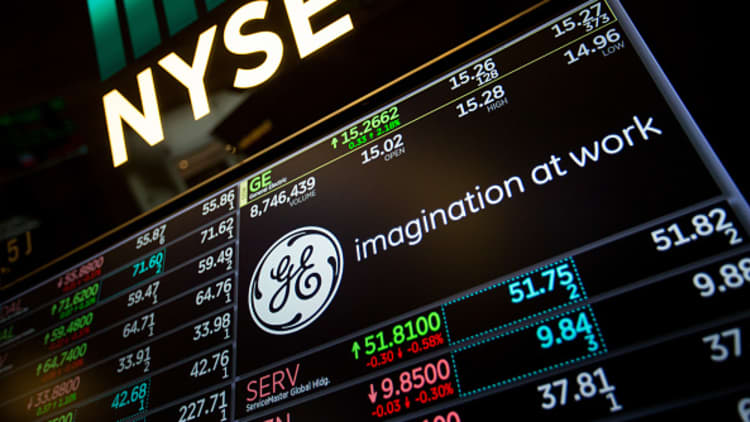
General Electric shares continued to plummet Wednesday after the company said this week that its industrial unit would be cash flow negative for 2019. The stock took another hit after renowned GE analyst Stephen Tusa doubled down on his scathing call on the industrial giant.
Tusa, a well-known J.P. Morgan research analyst with a strong track record on GE, wrote in a note to investors that his $6 price target for the stock "looks generous" now, calling CEO Larry Culp's warnings about 2019 and GE's struggling power unit "worse than even we expected." He also said the company's prized aviation finance business is "already in liquidation mode."
In another note Wednesday, Tusa reiterated those calls, arguing that as long as Wall Street continues to say GE's power unit isn't that bad, "we don't think the stock can bottom."
Shares of GE fell more than 8 percent in early Wednesday trading before regaining some ground. Here's what three experts think of the drop:
•CNBC's Jim Cramer, host of "Mad Money," was flabbergasted, saying on "Squawk on the Street" that Culp's announcements felt like someone dropping a bomb on his head: "I went out with a group of portfolio managers last night. All we wanted to figure out was how bad it really was versus how bad it was. [...] I mean, come on. You dropped a bomb on my head. And I don't really care if it was 50 megaton or 70 megaton, but it was really sobering."
•Tim Seymour, chief investment officer of Seymour Asset Management, said on "Fast Money" that he had more confidence in Culp's long-term vision: "I think things are in a very different place, and I think Larry Culp is giving people some sense of confidence that, while it doesn't turn around overnight, we see the pathway to, call it normalcy, on the fiscal side, not cutting these power deals that are lost leaders for the sake of cutting deals."
•Nicholas Heymann, a William Blair & Co. analyst who covers GE, also harbored some hope for the struggling industrial giant, telling "Squawk Box" that while one-time charges and costs tied to the power business would continue to weigh on GE, the next few years will likely see improvement: "We've got organic growth, [a] smaller company because we've been divesting assets, we've got margins improving, there's operating cash flow from continuing [operations], and then you've got all these legacy issues. And then [some of] those legacy issues will still ... be there in 2020, but they'll come down, and this rig'll start rolling."






